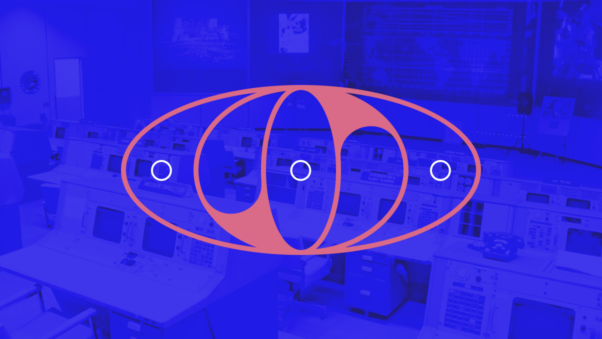What Does Chat GPT and AI Mean For Marketing? For Content? For Professionals?

What does a world of mass adoption of AI content creation mean for your marketing? What does it mean for the content itself? And, finally, what does it mean for the human beings whose job it is to write copy for websites, social media, blogs and decks, or create images and designs for these platforms?
Maybe you came across those odd illustrations online, ones featuring blurred or mangled faces that looked like they were reflecting off a funhouse mirror. Maybe you saw one of those “I asked a bot to write (insert funny topic here)” posts on Facebook or Twitter. Maybe it was a deepfake video that made it look like a celebrity was saying something completely off-kilter.
We’ve all come across the ways that AI-assisted content creation can be used. Tools like Dall-E Mini and ChatGPT are now accessible to the general public, and there are many, many more tools available for developers. The true impact of AI on content creation is still up in the air, but there’s no doubt that it’s happening. In just two short years, one expert predicts 90% of online content could be generated by AI.
AI content creation and marketing
Let’s start with a positive: Marketing is fundamentally about ideas, and AI content creation tools can be an absolute boon for brainstorming and ideation.
Every AI content creation tool (thus far, at least!) still requires a human being to do some lifting—maybe not the heavy lifting, but lifting nonetheless. Regardless of the tool you’re using, a human being still needs to come up with the prompt. And even in these nascent stages of AI content creation, the prompt is everything.
The key to effective AI content creation prompts? The more specific, the better. It can be hard to remember that—as impressive as AI tools are at quickly executing a task—they are built by human beings too. Asking an AI tool to create some social media copy isn’t very dissimilar from asking a copywriter to do it.

As any creative person can tell you, the output of their work is only going to be as strong as the brief is. The same can be said for a ChatGPT output. Digital content expert Rob Lennon has an informative list of tips to get the best out of ChatGPT based on prompts, including telling the tool who your audience is, or asking it to write from different perspectives.
At this point, ChatGPT and other AI content tools are best used in idea creation. If you need to write a blog post, some social posts, or important website copy, it’s not a good idea to simply take what an AI tool gives you and just run with it. Especially when it comes to marketing content, do not expect an AI tool to know your brand as well as you do. Instead, think of the initial outputs as first drafts.
However, if we peek deep enough into the crystal ball, can we envision a world where AI content tools are doing the bulk of marketing copywriting? In some sense, sure. And that will have major ripple effects.
AI content creation and…content
No one quite knows the trajectory AI content creation will take at this juncture. But it’s expected that major players will turn over at least some of their content functions over to generative AI. In fact, some have already stated their intentions to do just that. Just recently, it was reported that BuzzFeed will utilize ChatGPT and its parent program Open AI to help create the site’s well-known quizzes and other content.
If AI content is good enough for BuzzFeed, it must be good enough for your marketing and brand content, right? As of this current moment now, AI creation tools are good for brainstorming and first drafts of more simple tasks.
The more complicated a content task is, the more skeptical you’ll want to be—at least initially—about the return you get from an AI content creation tool. As an example, right now, ChatGPT isn’t that great at something too complex, like writing jazz. While that’s a high-level ask of the tool at the current moment, it does illustrate the tool’s limitations.

When we think about the actual end product of AI content creation tools—the content itself—some issues and themes emerge. In the case of the jazz example, it would take an expert in jazz to spot the errors in the ChatGPT jazz composition. Someone with no level of expertise in jazz might take the output at face value.
This means that we can’t just assume that everything that an AI content creator spits out is fully accurate and factual. Especially as a brand. Say you’re in the health space where accuracy is crucial. You need to be prepared to challenge and ultimately fully confirm the content that an AI tool returns. This might feel like it defeats the purpose of using an AI content creation tool, but that’s the reality of the given moment.
This also speaks somewhat to the overall quality of AI content. Beauty is in the eye of the beholder, so only you can tell if what you get from an AI tool fits your brand, and if it speaks in the right language and tone that your brand needs to in order to resonate with your audience.
Perhaps the most unresolved issue is the legitimacy of AI content. Or perhaps it’d be more accurate to say the perceived legitimacy of AI content. What types of content will we be willing to accept was created by AI? AP-style hard news stories? Tweets and Facebook posts? What about the imagery that accompanies this content? How important will it be for brands, publishers, and institutions to be transparent about their use of AI content creators?
Schools are something to keep an eye on, one of the early battlegrounds regarding the legitimacy and use of tools like ChatGPT. It certainly doesn’t seem like homework or college papers should be fair game, but we know that young people are going to try to use it—they already are. How all of this gets policed over the coming years is one of the more fascinating elements of generative AI. Let’s just say we wouldn’t want to be a teacher who needs to grade papers over the next few years.

AI content creation and human beings
Whenever any new, revolutionary technology comes along, doomsayers emerge. There’s no shortage of people who believe that AI content creation tools are going to spell the end for creatives—writers, illustrators, and even musicians.
That time seems pretty far off in the distant future. And who knows what other technologies will have come along. It’s hard to envision a world where human beings are not contributing to the writing, design, and dissemination of content. But then again, it was once impossible to believe that humans would walk on the moon. Or that the technology that helped make that feat possible would fit inside of a tiny metal rectangle that most in the world could walk around within their pocket. So who’s to say?
This first era of AI content creation will probably be a bit messy. The news that BuzzFeed would embrace ChatGPT was preceded by layoffs at the publisher—perhaps not a one-to-one correlation, but nothing to sneeze at, either. Brands, publishers, and anyone else that embraces AI content tools too fast or too flippantly—that is, by just fully replacing human functions with these still-in-the-works tools—may find themselves out over their skis.
But the same can be said for those who write off generative AI as a fad. The technology will only improve, and AI tools will only become more accurate. There will be a place for AI in content creation, especially in marketing and advertising. Ultimately, a balance will have to be struck between utilizing AI to make content creation more efficient and maintaining the human element that’s so crucial to making unique content, content that sings and connects.
Conclusion
Yes. We asked ChatGPT to write the conclusion of this article. You be the judge!
In conclusion, ChatGPT and other generative AI models have the potential to revolutionize the way we create and consume content, particularly in the realm of marketing. However, it is important to consider the implications of this technology on the validity and quality of the content it produces, as well as it’s potential to replace human jobs. As with any new technology, it is crucial to approach its development and implementation with caution and careful consideration of the possible consequences. While there is no doubt that generative AI will play an increasingly significant role in our lives, it is up to us to ensure that it is used in a responsible and ethical manner.


